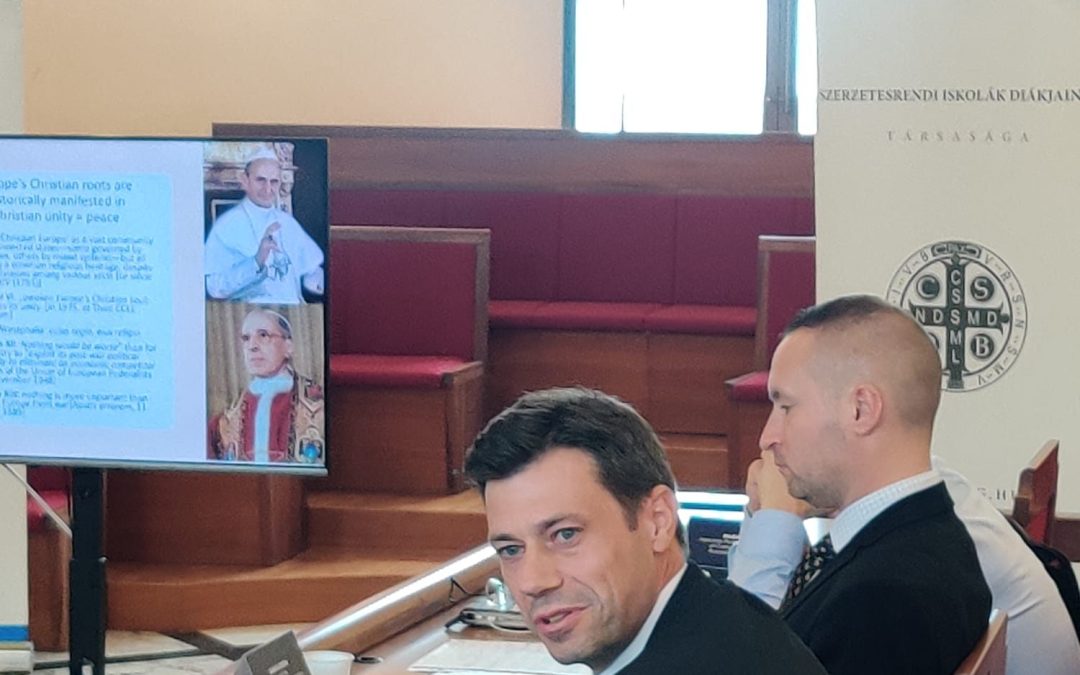On September 23, 2025, following earlier editions in Budapest and Rome, the Hungarian Catholic Alumni Associations hosted the 3rd International Catholic Alumni Forum in Noto, Sicily. The event was held with the sponsorship of the Hungarian Diplomatic Academy, in cooperation with the Central European Lawyers Initiative. A detailed report on the Forum can be found here.
In his lecture, András Tóth highlighted the twofold nature of Europe’s Christian roots. Historically, they have fostered peace on the continent—peace often secured through agreements among nations and interest groups (such as the Concordat of Worms and the Peace of Westphalia). At the same time, many of today’s individualistic, liberal values can be traced back to Christian origins, though over time they have been detached from the moral framework of the Church and transformed into a concept of unlimited and often irresponsible personal freedom. Reflecting on Europe’s Christian heritage, he argued, offers an alternative: a model of committed personalities rooted in community rather than isolated individualism.
Turning to the European Union, Tóth underlined that economic integration, political sovereignty of member states, and the creation of a European demos cannot be achieved simultaneously. Since economic integration is the EU’s core mission, efforts to forge a European demos risk undermining the political stability of nation states. In his view, this exposes the shortcomings of the Monnet method: economic integration does not automatically lead to political integration, particularly when the EU seeks to build its demos on liberal and individualistic values that lack genuine consensus. Instead, prosperity and security are what can best facilitate cooperation among member states.
Tóth concluded by noting that the EU’s Christian roots are increasingly contested because they run counter to current political efforts to construct a European demos. Yet, as the example of St. Benedict, patron saint of Europe, shows, a lasting community can only be built on self-sacrifice and non-individualistic personalities.
Our president’s full article can be read here.
